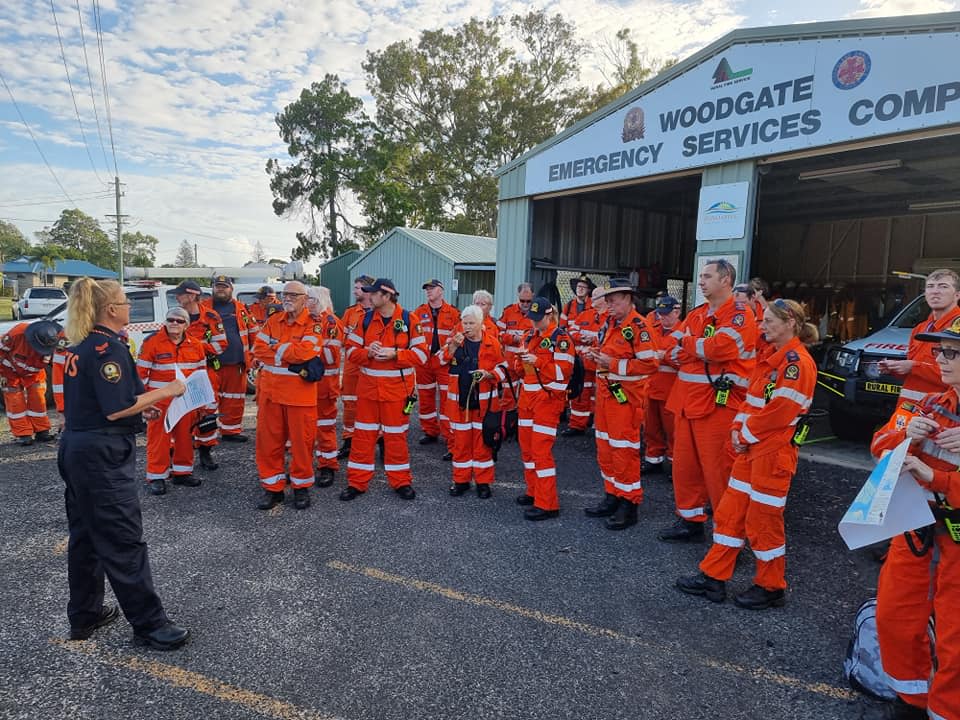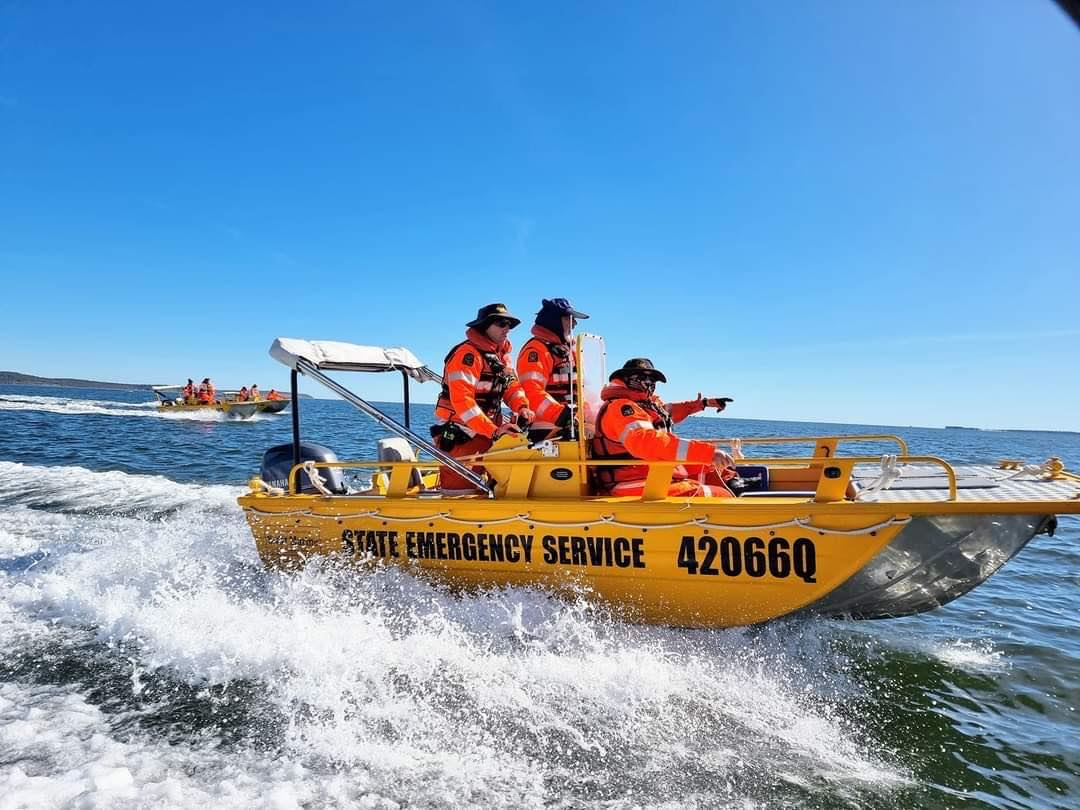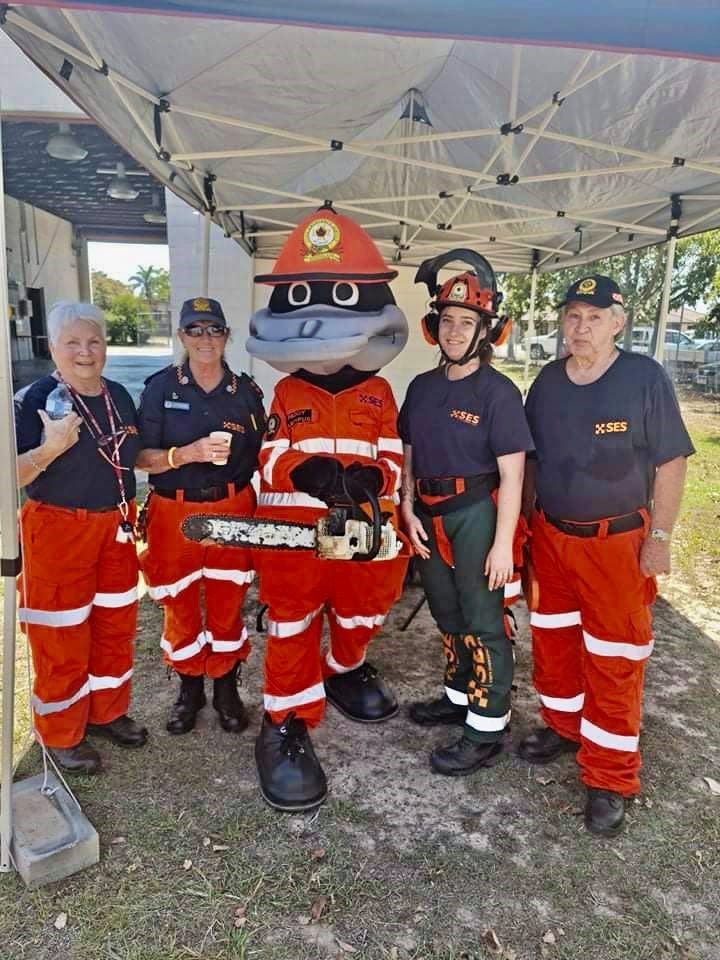In Our Group with SES
The Bundaberg Regional SES Unit comprises of seven groups in the area, all of which have a number of dedicated volunteers who are there to help the community in times of need.

Elliott Heads SES Group Deputy Group Leader Annette Farrar shares the importance of the local organisation and how community members can become involved.
Tell us about the organisation?
The SES is a volunteer-based organisation that provides a co-ordinated response to non-life-threatening emergency situations during storms, floods and other similar events.
The SES also provides assistance to other emergency agencies such as the Queensland Police Service and Queensland Fire and Rescue.
The SES offers a wide range of experiences and training opportunities to prepare volunteers with the skills required to deliver a professional response to emergencies and natural disaster situations.
Uniforms, full PPE and nationally-accredited training is provided to members to ensure they have the appropriate knowledge and equipment to undertake their roles safely and efficiently.
Some of the many training opportunities available include chainsaw, traffic control, land search, flood boat operations, swift water rescue, mapping and navigation, radio communications, storm damage, working safely at heights, first aid and CPR.
Why are SES groups important to the Bundaberg Region?
The SES is the primary emergency response agency for storms and floods with approximately 100 volunteers giving their time across the Bundaberg Region to ensure the safety of people, properties, and communities as they prepare, respond to, and recover from severe weather events and emergency situations.
The SES is instrumental in building stronger, more resilient communities by empowering volunteers to help themselves and others.
This is only possible through the selflessness, dedication and commitment shown by our volunteers.
Without our volunteers we would not be able to offer such a high standard of assistance to our community.
In addition to storms and floods the SES are often called upon to assist with land and forensic searches, traffic control, air base operations, swift water rescue and a range of other non-emergency activities like community events and public awareness and education.
Volunteers on call to support community
For the SES, providing an operational response is our first priority and can often happen without warning or notice.
Our members can be deployed to other locations throughout Australia to assist when larger scale emergencies unfold.
Members from the Bundaberg Regional SES Unit were deployed to support our counterparts in Southeast Queensland and New South Wales during the widespread and prolonged flooding events experienced last year.
It is a timely reminder to plan and prepare for severe weather events by doing simple things around your home such as trimming trees, clearing rubbish and debris, organising an emergency kit and signing up to receive disaster and emergency related alerts through the Bundaberg Regional Councils Disaster Dashboard.
Over the coming year we are focusing on delivering comprehensive training opportunities for our members to ensure they are operationally ready and capable.
Many forms of training are supported, including nationally accredited courses, large whole-of-unit scenario-based activities as well as coaching, mentoring and practicing skills informally through participation in group training.
Exposing members to real-life situations in a supportive training environment helps to develop skills and build confidence, ensuring members are well equipped to face any situation they come up against.







How can the community get involved?
Volunteering is a rewarding way to positively contribute to the community and the Bundaberg Regional SES Unit is currently welcoming enquiries from prospective members across all groups.
Members must be at least 16 years of age, with anyone over 18 required to hold a current Blue Card and undergo a criminal history check as part of the application process.
Members are required to have a certain level of fitness depending on what roles and functions they perform.
Roles vary in intensity from land search, flood boat and storm damage operations to communications, administration, community awareness and education.
Once the application has been approved, members serve a probationary period where they are welcome to participate in group training, undergo inductions and complete their initial e-learn courses.
Once the member has served the probationary period and been approved for active membership, members can undertake further training, respond to activations, deployments and work towards progressing through the rank structure.
If you are willing to attend training regularly, challenge yourself, learn new skills and respond to the community in times of need, contact us through the Bundaberg Regional SES Unit Facebook page for further information.
When and where do the SES groups meet?
The Bundaberg Regional SES Unit comprises of seven groups providing capabilities across the entire Bundaberg Region with groups located in Woodgate, Childers, Moore Park Beach, Bundaberg, Gin Gin, Bargara, and Elliott Heads.
Bundaberg SES Group trains at Kendalls Road, Bundaberg on Monday nights at 7.30 pm.
Gin Gin SES Group is located at 11 Flanders Street, Gin Gin and members train the first, third and fifth Wednesday of each month at 7 pm.
Moore Park Beach SES Group trains at Murdochs Road on the second Saturday of each month at 9 am.
Childers SES Group is located at 3 North Street, Childers and trains every second Monday at 7 pm.
Bargara SES Group trains at Potter Road, Bargara on the second Thursday of each month at 6 pm.
Woodgate SES Group is located on Acacia Street and trains the second Wednesday and the last Saturday of each month.
Elliott Heads SES Group is located on Welch Street, Elliott Heads and trains on Tuesdays at 7 pm.
The SES is on call to assist 24 hours a day, 365 days a year, either by calling 132 500, online here or by logging a request through the SES Assistance QLD app.




